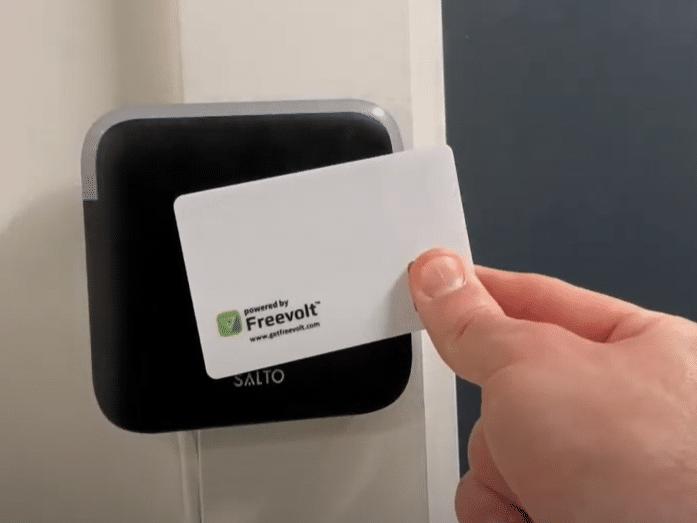
Brian Sims
Editor

Brian Sims
Editor
PHYSICAL SECURITY breaches can be catastrophic for businesses. IBM’s report entitled ‘The Cost of a Data Breach 2022’ lays bare the immediate cost to organisations and also that realised by prolonged responses to such breaches. Compromised physical security accounts for 8%-9% of data breaches, states the report, with a further 18% caused by lost or stolen credentials.

With that backdrop very much in mind, how can you protect your business from these expensive and disruptive physical breaches?
The S-Key biometric access card from Freevolt Technologies provides the solution: an easy-to-use, infrastructure-free, personalised card that can only be used by the authorised holder. Simple, safe and secure.
Counting the cost of physical security breaches
IBM’s report puts the average cost of a security breach where the initial attack vector was ‘physical security compromise’ at £3.1 million. For ‘stolen or compromised credentials’, the figure is £3.5 million. Moreover, the time to identify and contain a data breach (ie the data breach lifecycle) can easily exceed a period of nine months.
Physical security breaches can have far-reaching consequences, including:
*immediate operational impacts on day-to-day business
*reputational damage and diminished goodwill
*revenue and efficiency losses during the data breach lifecycle
*risks of contamination (for example, in healthcare situations)
*loss of intellectual property
*legal liability to third parties for security failure
Main risk factors for physical security breaches
Many existing physical security systems rely on the possession of a security card, password or PIN or on employees (including security staff) affording access to others. All of these systems are vulnerable to abuse and human error.
Access by password or PIN may be observed and copied, while for ‘Tap and Go’-style systems with no supporting authentication, lost or stolen cards will give full access to any holder. Thanks to changes in the workplace since the pandemic, and the advent of hybrid working, security staff and other employees may also no longer be able to properly identify authorised personnel.
S-Key: solving the problem of physical security
S-Key’s innovative solution closes these vulnerabilities by ensuring that the authorised card holder must actually be present before access is approved. By linking card access to biometric data, S-Key denies physical access unless a positive identification links the card to the person holding it.
S-Key cards are simple to set up with fingerprint identification – this key security layer adds only 30 seconds to the card issuance process. Access is then authorised using existing card-reading infrastructure, which can log access details, but does not store any personal or sensitive information outside of the card. It’s a simple and secure solution for physical access control.
No infrastructure cost
S-Key security cards work with your existing NFC access control system ‘out of the box’. With no additional infrastructure cost, you can trial these fingerprint-activated access control cards safely and cost-effectively.
S-Key’s secure and contactless technology is available in NXP MIFARE, HID or LEGIC versions to work with new or existing hardware. It can be used alongside other security systems as well such that you can choose to use fingerprint-activated biometric access for higher security areas, while continuing with your current system elsewhere.
Choose S-Key biometric access cards for physical security control
Biometric access cards are the key tool for protecting your business against physical security breaches and the time and expense they incur. S-Key biometric access control is a fast solution that realises targeted control without infrastructure investment.
*Further information is available online at www.freevolt.tech/s-key
GRAND UNION STUDIOS
332 LADBROKE GROVE
LONDON
W10 5AD
UNITED KINGDOM
020 3176 2350